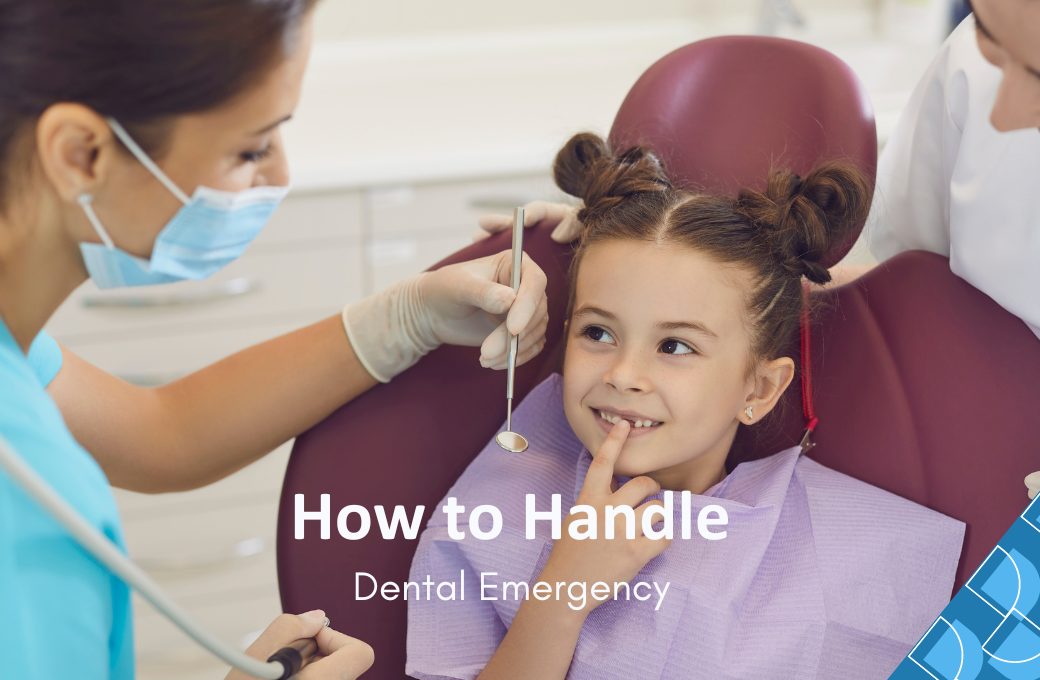Choosing Sealants for Teeth: A Guide for Parents and Adults
Sealants for teeth protect against decay in kids and adults. Learn how GB Dentistry in Memorial offers expert dental sealants tailored to your needs.

When faced with sudden dental pain or injury, knowing how to respond can make a significant difference. Emergency dentistry is an essential area of dental care that focuses on treating conditions requiring immediate attention to alleviate severe pain, save teeth, and prevent complications.
In this blog, we will explore what constitutes a dental emergency, how to handle dental emergencies, and how Dr. Bharwani’s expertise at GB Dentistry can help you in these urgent situations.
Emergency dentistry means the urgent care provided for dental issues that require immediate professional attention. This branch of dental healthcare is critical because some dental problems cannot wait until regular office hours.
Imagine suddenly cracking a tooth on the weekend or experiencing unbearable toothache pain in the middle of the night. These scenarios require immediate action to prevent further damage or extensive pain, and that’s where emergency dentistry comes in.
At GB Dentistry in Memorial, Houston, Dr. Bharwani and his team are equipped to handle all dental emergencies with professionalism. Emergency dentistry often involves treating severe infections, saving teeth that have been knocked out or badly damaged, and addressing any dental discomfort that cannot wait.
With the right knowledge and quick action, you can effectively manage dental emergencies until you receive professional attention.
Understanding what situations qualify as dental emergencies can help you decide when to seek immediate care from an emergency dentistry. Dr. Bharwani emphasizes the importance of recognizing these critical conditions to prevent further complications and ensure the best treatment. Here are several types of dental emergencies that require immediate attention:
When a dental emergency occurs, the actions taken in the first few minutes can impact the outcome. Dr. Bharwani and his team guide you through these urgent situations. Here’s what you should do if you find yourself or someone else facing a dental emergency:
Understanding these tips and acting quickly can help alleviate pain and increase the chances of a successful treatment following a dental emergency. Always remember, timely intervention by a professional like Dr. Bharwani is critical in managing dental emergencies effectively. You can like our Facebook page and follow us on Instagram as well.
Frequently Asked Questions
Dental emergencies can be stressful and full of uncertainty. To help you better understand how to handle these situations, here are some frequently asked questions about emergency dental care:
Can a knocked-out tooth be saved?
Yes, a knocked-out tooth can often be saved if you act quickly. The best chance for successful re implantation is if the tooth is returned to its socket within an hour of being knocked out. Handle the tooth by the crown, rinse it gently if it’s dirty, and try to place it back in the socket or keep it moist in milk until you can get to a dentist near you.
What should I do if I break a tooth?
Rinse your mouth with warm water to clean the area and use a cold compress on your face to reduce swelling. Collect any pieces of the broken tooth you can find and bring them with you to your appointment. Avoid eating on that side of your mouth and call your dentist immediately for further advice.
How do I manage tooth pain until I can see a dentist?
Rinse your mouth with warm water to clean it out and use a cold compress on the outside of your cheek to help reduce pain and swelling. Over-the-counter pain relievers can also be used to alleviate discomfort. Avoid placing aspirin or other painkillers directly against your gums or the aching tooth.
Is bleeding from the gums a dental emergency?
If the bleeding is minor and stops quickly, it may not be an emergency dentistry. However, uncontrolled or prolonged bleeding could indicate a more serious condition and requires immediate dental attention.
Should I go to the ER for a dental emergency?
For most dental emergencies, it’s best to contact your dentist because most ERs are not equipped to handle specific dental procedures, such as repairing broken teeth or reimplanting knocked-out teeth. However, if you have severe swelling, uncontrollable bleeding, or trauma to your face or jaw, you should go to the emergency dentistry room.
A dental emergency involves severe pain, bleeding, infection, or trauma that requires immediate attention. GB Dentistry provides prompt care to alleviate pain and prevent further complications.
Issues like knocked-out teeth, severe toothaches, abscesses, broken teeth, or injuries to the mouth qualify as emergencies. GB Dentistry’s emergency services are available to handle these urgent situations effectively.
Anything causing significant discomfort, risk of infection, or potential tooth loss, such as fractures, infections, or gum injuries, is classed as an emergency. GB Dentistry ensures timely solutions for all dental emergencies.
Yes, if a tooth cannot be saved, an emergency dentist may perform an extraction to relieve pain and prevent further damage. GB Dentistry prioritizes preserving your oral health and offers expert extractions when necessary.
An emergency dentist specializes in urgent care and is equipped to handle acute dental issues quickly. GB Dentistry provides both routine and emergency services to meet all your dental needs.
Examples include chipped or cracked teeth, lost fillings, abscesses, and severe gum bleeding. GB Dentistry offers comprehensive emergency dentistry to address these and other urgent issues.
An ER can provide temporary pain relief or antibiotics for infections but cannot perform dental procedures. GB Dentistry is your best option for resolving the root cause of dental pain.